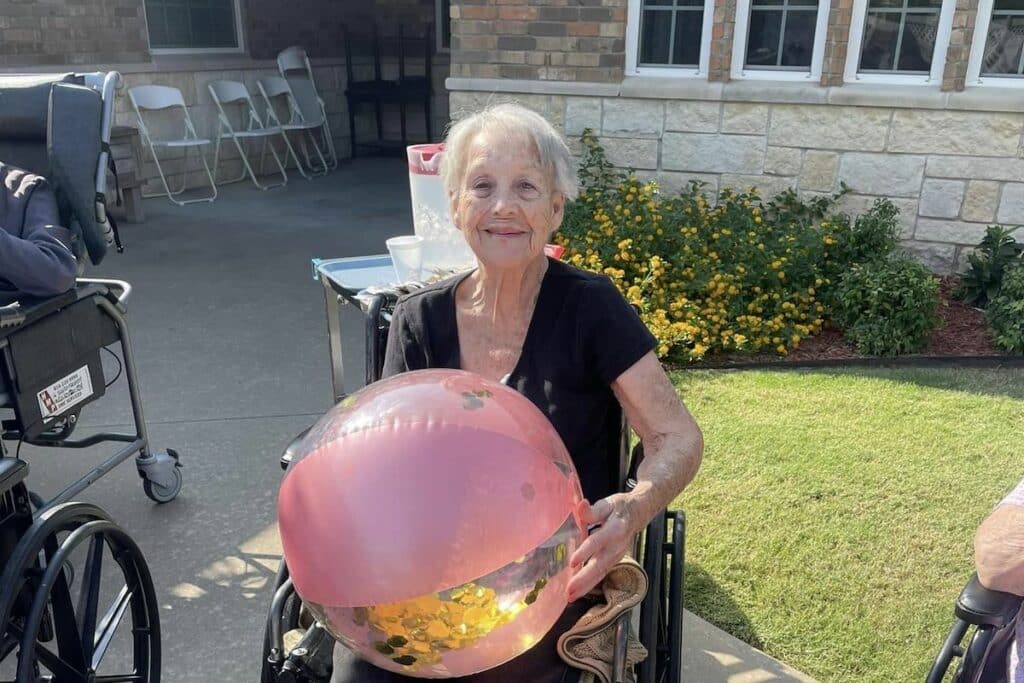Dementia broadly refers to conditions characterized by a decline in cognitive function. It affects abilities such as memory, problem-solving, and daily task performance.
According to healthcare professionals, dementia develops from a variety of diseases.

Individuals with dementia often experience functional decline that impacts their ability to communicate effectively or live independently.
Understanding the different types and stages of dementia is crucial for several reasons:
- It allows family members and caregivers to better support the person with dementia by anticipating future changes.
- Knowing the progression of dementia can aid in making informed decisions about care and treatment.
- It promotes empathy, patience, and understanding, helping us to see the person behind memory loss.
Let’s start our journey to understand the types of dementia and the importance of early detection. Discover how the dementia FAST scale can help anticipate care needs.
Types of Dementia
When we talk about categories of dementia, we’re actually referring to several conditions that cause a loss of functional ability. The four most common types include:
- Alzheimer’s
- Vascular dementia
- Lewy body dementia
- Frontotemporal dementia
Alzheimer’s
Alzheimer’s is a common form of dementia. It primarily affects memory but also impacts other cognitive functions over time. It’s characterized by a gradual onset, often starting with mild memory lapses and difficulty remembering recent events or conversations.
As Alzheimer’s progresses, it can affect:
- Communication and understanding
- Problem-solving skills
- The ability to perform daily tasks
Vascular Dementia
Vascular dementia is the result of reduced blood flow to the brain. Risk factors include a stroke or a series of mini-strokes. Symptoms may include difficulties with complex tasks, slowed thinking, and focus issues. All of these can affect daily living.
Each person’s experience with vascular dementia is unique. Progression and symptoms vary widely.
Lewy Body Dementia
Lewy body dementia involves the buildup of proteins called Lewy bodies in brain cells. This can affect attention and alertness. The cognitive impairment may also cause visual hallucinations and changes in movement, similar to Parkinson’s disease.
Frontotemporal Dementia
Frontotemporal dementia impacts the front and sides of the brain, areas that control personality, behavior, and language. That can lead to changes in personality and difficulty with language and speech.
While these are the most common types of dementia, there are other forms as well:
- Mixed dementia
- Parkinson’s disease dementia
- Huntington’s disease dementia
- Creutzfeldt-Jakob dementia
It’s crucial to understand that dementia, not the person, causes these changes. These individuals can continue leading fulfilling lives with empathy, understanding, and appropriate care. Each dementia type has its own set of symptoms and stages. Recognizing these differences helps us provide the right support and care for individuals with these conditions.
Stages of Dementia & Measurement
Experienced caregivers know that each person’s dementia experience will be unique. However, there is a general framework that can help us anticipate what to expect and plan accordingly. It involves understanding the stages of dementia and how they are measured.
Understanding the FAST Scale for Dementia
The Functional Assessment Staging Test (FAST) is a tool that medical professionals use to chart the decline in abilities of a person with dementia. It breaks down the progression of dementia into seven major stages.
The FAST scale can provide a helpful roadmap for caregivers. It’s essential to remember that this is just a guide. Individuals may not fit perfectly into each stage of Alzheimer’s or dementia.*
General Progression of Dementia Stages
Typically, symptoms of dementia progress through a series of stages, from mild to moderate to severe.
Early Stage
In the early stages of dementia, individuals may:
- Have subtle changes in their ability to recall information
- Be unable to remember recent conversations
- Struggle with finding the right words during a discussion
You may notice these slight shifts in memory and communication as a caregiver. At this stage, your loved one might still be able to live independently, but reminders and assistance with more complex tasks can help. It’s an important time for open communication, expressing empathy, and encouraging healthy lifestyle choices.
Moderate Stage
As dementia progresses to the moderate stage, memory loss becomes more significant, and cognitive deficits more apparent. Your loved one may start experiencing:
- Difficulty with daily tasks like cooking, cleaning, or managing finances
- Mood swings or personality changes
- Sundowning or wandering
This stage can be challenging for a caregiver as the level of care needed increases. It’s crucial to seek support from local community resources, support groups, and professional memory care services. Taking care of yourself is equally important as caring for your loved one during the moderate dementia stage.
Severe Stage
Individuals often lose the ability to communicate effectively in the severe stage of dementia. They typically require help with most, if not all, daily activities.
They may not recognize familiar people, including close family members. Your loved one’s behaviors are symptoms of the condition, not a reflection of their feelings towards you. Providing comfort and hospice care becomes the main focus at this stage.
Understanding these stages helps caregivers prepare for the challenges ahead and ensure their loved one receives the appropriate care at each stage. It’s a path that requires patience, understanding, and compassion.
Know that resources and support are available every step of the way.
The Importance of Early Detection
Early diagnosis of Alzheimer’s or dementia offers several significant benefits for the individuals diagnosed and their caregivers. One of the key advantages is that it allows individuals to participate in their care planning. Others include:
- Making better-informed decisions about treatments
- Managing symptoms more effectively
- Planning for the future
- Making immediate lifestyle changes
- Lessening anxiety
- Preparing for compassionate care methods
You Are Not Alone: Known Memory Care
At Known Memory Care, we understand the journey of many types of dementia. Our compassionate team is dedicated to providing personalized care at every stage.
Contact us for more information about our community and how we can support you and your loved one.
*This article should not replace medical advice. Talk with your doctor regarding any issues you may experience, especially if you suspect memory loss, dementia, or Alzheimer’s.


